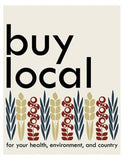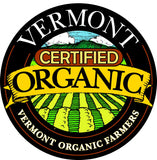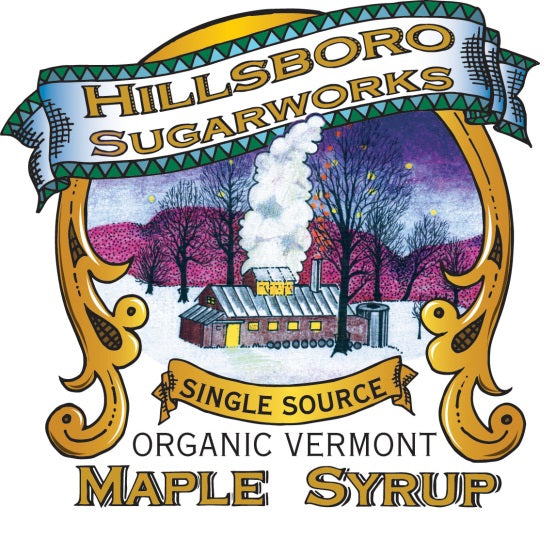Local & Sustainable-the Organic way
A delicate balancing act
We strive to make the best syrup possible in the most environmentally friendly way. Whenever possible we incorporate more energy efficient equipment into our operation. We're powered by solar. We use solar credits that are produced from our solar array at another location to power our operation. 
We try our best to balance efficiency and quality, which means occasionally that we boil a little longer to assure great flavor. Sometimes it's a tough balancing act.
As maple producers, we are well aware of global warming and our contribution to it. We feel it is our responsibility to do our part to minimize our impact to the earth. As a certified organic operation we are inspected and monitored for best practices to ensure the health and longevity of our woods and land. We also follow a prescribed forest management plan.
As maple sugarmakers we are acutely aware of the effects of temperature change on sugaring production. Maple syrup production is dependent upon weather to a higher degree than any other crop. To get a good crop we need a narrow range of weather conditions. We need the temperature to bob up and down around the freezing point for a prolonged period of time. We can enhance sap flow with technology, but we still need a good prolonged season to make a good crop.
Our best seasons occur when there is a halting and gradual warm-up after winter. Our worst seasons occur when a long winter is quickly interrupted by hot weather.
We are localvore and locavore friendly
 Localvores or locavores, as some may refer, are people who are committed to eating and learning about foods grown close to home. They define local food as food which is grown within 100 miles of their home. There are many philosophical and practical reasons why people prefer local food. Many believe in supporting their neighbors, and many believe that it's better on the environment to eat foods that are grown and delivered or shipped from nearby. Others simply want to know where their food comes from and who produced it.
Localvores or locavores, as some may refer, are people who are committed to eating and learning about foods grown close to home. They define local food as food which is grown within 100 miles of their home. There are many philosophical and practical reasons why people prefer local food. Many believe in supporting their neighbors, and many believe that it's better on the environment to eat foods that are grown and delivered or shipped from nearby. Others simply want to know where their food comes from and who produced it.
A majority of our maple syrup is sold primarily in Vermont. For the most part, our maple syrup is sold within 100 miles. It is all produced on our farm. We don't buy maple syrup or maple sap from other producers. Every drop came from a single source. So when you buy Hillsboro Sugarworks you are participating in and supporting the locavore movement. Thank you for your support.

We share the woods
It's not unusual to see moose, bear, woodcock, turkey, deer, rabbit, owl or other wildlife in our woods. We recognize we share the woods with these animals and realize they were here first. We try to minimize our disruption to their habitat. Woods maintenance is an ongoing process of thinning, and culling diseased or damaged trees. We use the 'chop and drop' method of leaving the trees where they lay for animal habitat, as well as the value to soil health.
Certified Organic maple syrup
We are proud to have an organic certification from Northeast Organic Farmers of Farming Association of Vermont. While maple sugaring still relies upon a wild resource, maple trees, it is highly technological. There are many parts of our process where, if we're not careful, we could damage the woods or the environment.
 Organic certification assures that we follow beneficial procedures in the woods and in our sugarhouse. It also requires that we document an audit trail that shows when the maple syrup is made, when it was packaged and where it went. The rigors of organic certification are an additional assurance to the consumer that the product is pure and the process is sustainable.
Organic certification assures that we follow beneficial procedures in the woods and in our sugarhouse. It also requires that we document an audit trail that shows when the maple syrup is made, when it was packaged and where it went. The rigors of organic certification are an additional assurance to the consumer that the product is pure and the process is sustainable.

